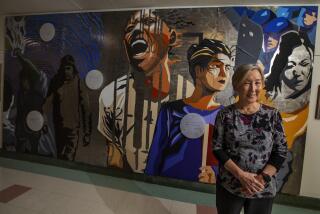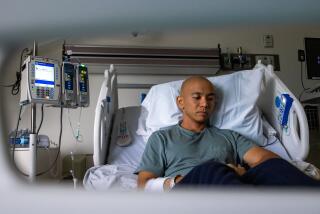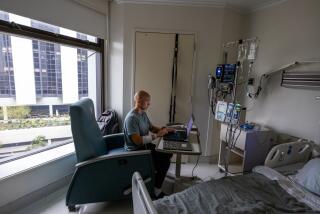Paul Terasaki dies at 86; philanthropist and pioneer in organ transplant medicine
Paul Terasaki, a philanthropist and pioneer in organ transplant medicine who invented a tissue-typing test that became an international standard for matching donors with recipients, died Jan. 25 at his home in Beverly Hills. He was 86.
Terasaki spent three years in an internment camp during World War II and worked stints as a busboy and gardener as a youth. After earning a doctorate in zoology from UCLA and joining the school’s faculty, he embarked on the research that would make him wealthy. Over four decades, he donated a total of $58 million to his alma mater, including a $50-million gift in 2010 that ranks among the largest the school has received.
In recognition, the Terasaki Life Sciences Building opened in 2010, housing cell biology, neuroscience and genomics laboratories. Terasaki’s donation included $6 million to the UCLA International Institute, which created the Paul I. and Hisako Terasaki Center for Japanese Studies, and $2 million to endow the Paul I. Terasaki Chair in Surgery at the David Geffen School of Medicine at UCLA.
“To think that I would ever donate anything to UCLA would have been impossible,” Terasaki once told a campus publication. “It’s quite a distance I’ve traveled. After the camps, we did not have enough money to afford much of anything.”
Paul Ichiro Terasaki was born in Los Angeles on Sept. 10, 1929, to Japanese immigrants and was raised in Boyle Heights. His family had a cake shop in Little Tokyo. They sold it at a loss and parted with most of their possessions when ordered to relocate to the Gila River detention site in Arizona during the war.
After internment, the family settled in Chicago, where Terasaki took hourly jobs as he pursued his education. At 19, he returned to California to enroll as an undergraduate transfer student at UCLA. He eventually became a professor of surgery.
In the 1960s, Terasaki developed antibodies used in a typing test for heart, kidney, liver, pancreas, lung and bone marrow donors and recipients, and launched a company based on this research in 1984 called One Lambda Inc.
In 1987, Terasaki and UCLA were criticized by a state auditor general’s report that alleged conflict-of-interest rules and University of California policies were violated by the private production of the testing technology. Terasaki received no discipline or penalty and denied any wrongdoing, saying he paid $500,000 to UCLA for the rights to technology he created in a university lab.
The typing test remains in use. Terasaki sold his company in 2012.
Terasaki also founded the first kidney transplant registry in the 1970s, anticipating the federal registries now in use. He was awarded the UCLA medal — the school’s highest honor — in 2012.
“He really is pivotal for moving the world of transplantation along,” said Victoria Sork, dean of UCLA’s Life Sciences department.
Terasaki and his wife, Hisako, whom he married in 1954, were also supporters of the Japanese American Cultural and Community Center and the Little Tokyo Service Center. At the service center, Terasaki was involved in a volunteer program to recruit bone marrow donors called Asians for Miracle Marrow Matches.
“I rarely heard him say more than a few sentences at a time, but his impact was huge,” said Bill Watanabe, head of the Little Tokyo Service Center from 1980 to 2012.
More to Read
Start your day right
Sign up for Essential California for the L.A. Times biggest news, features and recommendations in your inbox six days a week.
You may occasionally receive promotional content from the Los Angeles Times.







